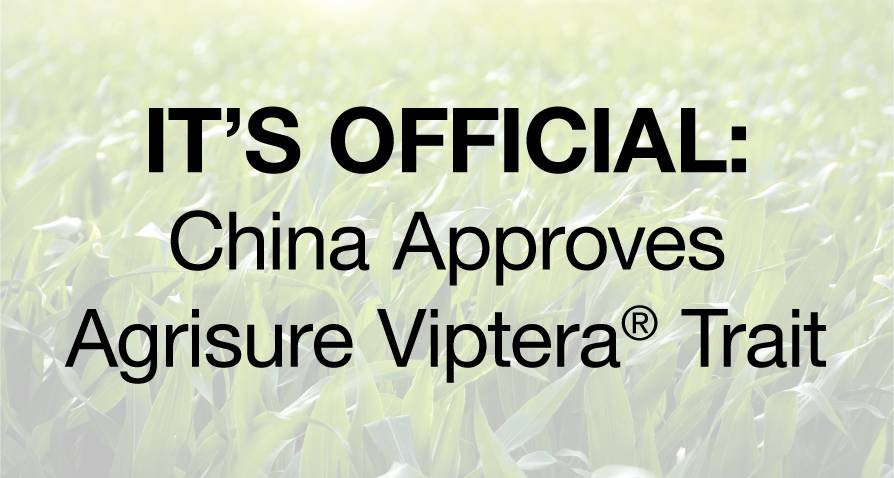 Even though it wasn’t gift wrapped and placed under a tree, U.S. seed companies and farmers alike were handed a gift last week when China officially announced it will approve imports of hybrids with the Agrisure Viptera® corn trait. This approval covers grain and corn processing byproducts, such as dried distillers grains (DDGs), for food and feed use.
Even though it wasn’t gift wrapped and placed under a tree, U.S. seed companies and farmers alike were handed a gift last week when China officially announced it will approve imports of hybrids with the Agrisure Viptera® corn trait. This approval covers grain and corn processing byproducts, such as dried distillers grains (DDGs), for food and feed use.
China’s approval of Viptera is great news for several reasons. First of all, this approval has the potential to increase demand for U.S. corn. China was the third-largest market for U.S. corn in 2012, but corn trading between the two countries essentially shut down in November 2013 when Beijing began turning away cargoes containing the Syngenta AG strain.
Not only has China’s trade been unreliable in recent years, but its trait approval process has been unreliable. Syngenta originally submitted the import approval dossier in March 2010 to Chinese authorities and approval was just now granted. Hopefully, this signals a more consistent Chinese regulatory process that bodes well for future approvals of traits like Agrisure Duracade, Roundup Ready® Xtend Crop System, Enlist and Balance GT.
Approval of Viptera by China comes at a good time for those of us in the seed industry. At Latham Hi‑Tech Seeds, we’re planning our 2015 seed production acres now. We expect to have our 2015 production plan complete in February. Then we’ll announce our new product lineup to our dealers mid-summer as our 2015 crop becomes Latham’s 2016 corn product lineup.
Only a limited amount of Agrisure Viptera 3111 trait stack had been in Latham’s corn product lineup since it wasn’t approved for import by China. It was, however, already approved for import by these countries: Australia/New Zealand, Belarus, the European Union, Indonesia, Japan, Kazakhstan, Korea, Mexico, Philippines, Russia, South Africa, Taiwan and Vietnam. Viptera, which offers broad-spectrum control of 14 yield- and quality-robbing insects, as well as tolerance to glyphosate and glufosinate herbicides .has been approved for cultivation since 2010 in these countries: Argentina, Brazil, Canada, Colombia, Paraguay, Uruguay and the USA.
